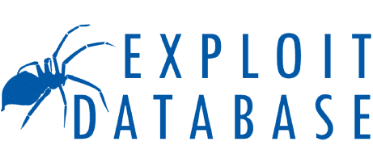The right way to ensure cybersecurity
Offensive Security Certified Professional in Kochi
The essential skill to elevate the cyber team
𝐑𝐞𝐝𝐓𝐞𝐚𝐦 𝐇𝐚𝐜𝐤𝐞𝐫 𝐀𝐜𝐚𝐝𝐞𝐦𝐲 𝐑𝐞𝐜𝐞𝐢𝐯𝐞d "𝟐𝟎𝟐𝟑 𝐄𝐂-𝐂𝐨𝐮𝐧𝐜𝐢𝐥 𝐀𝐓𝐂 𝐨𝐟 𝐭𝐡𝐞 𝐘𝐞𝐚𝐫 𝐀𝐰𝐚𝐫𝐝"

Know more about the Course
Overview Of OffSec Certified Professional
In a hands-on, self-paced setting, penetration testing methodology, tools, and techniques are introduced in the industry-leading Penetration Testing with Kali Linux (PWK/PEN-200) course. To get a general idea of the course content, learning methodology, and organization, access the first learning module for PEN-200.
The OffSec Certified Professional (OSCP) penetration testing credential, which requires holders to successfully attack and breach several live devices in a secure lab environment, will be awarded to learners who finish the course and pass the exam. Compared to other penetration testing certifications, the OSCP is thought to be more technical and is one of the few that demands proof of actual pen testing expertise.
Duration
30 - 40 Hours
Total Modules
10 Nos
Programme Format
Online , Offline & Hybrid
Effort
10 Hrs / Week
Who is the course for?
The OSCP (OffSec Certified Professional) in Kochi is open to Penetration Testers, Security Consultants, Vulnerability Assessors, Incident Responders, Security Engineers, Cybersecurity Analysts, IT Professionals, Network Administrators, System Administrators and Cybersecurity Enthusiasts.
Modules In This Course
Take a look at our Comprehensive Curriculum
01
Introduction to Cybersecurity
02
Common Web Application Attacks
03
Report Writing for Penetration Testers
04
SQL Injection Attacks
05
Information Gathering
06
Client-Side Attacks
07
Vulnerability Scanning
08
Locating Public Exploits
09
Introduction to Web Applications
10
Fixing Exploits
11
Session Hijacking
12
Evading IDS, Firewalls, and Honeypots
13
Hacking Web Servers
14
Hacking Web Applications
15
SQL Injection
16
Hacking Wireless Networks
17
Hacking Mobile Platforms
18
IoT and OT Hacking
19
Cloud Computing
20
Cryptography
The Proof is in the Results:
Student Testimonials
Got to learn a great deal about cyber security and gained in depth knowledge about the various methods. The courses focus on practical training which help in visualizing the topic. They also provide training videos on their online platform which can be accessed anytime. Overall, it was a great experience.

Jassim Jamal
Certified Ethical Hacker
I recently completed both the CPT and CEH courses at Redteam Hacker Academy and I couldn’t be happier with my experience. The training provided by Adarsh S. was top-notch and he was extremely knowledgeable and helpful throughout the entire process. I highly recommend Redteam Hacker Academy for anyone interested in pursuing a career in ethical hacking.

Sneha Dominic
Certified Ethical Hacker
I want to say about the classes they’re providing…. Which is easily catchable and they have well professionalised trainers.. Who were very supportive and helps us to clear out our queries regarding the courses at any point….

Rajitha Anirudhan
Certified Ethical Hacker
Learn To Hack Ethically And Secure The World
The course will cover various tools that you can learn and use.








What will you learn
Learning Objective of OSCP
The OSCP course by OffSec covers the following topics:
Introduction to Cybersecurity
Master the core concepts, technologies, and best practices that form the bedrock of cybersecurity, providing a solid foundation for your pen testing journey.
Report Writing for Penetration Testers
Learn to craft clear, actionable reports that detail security vulnerabilities, potential impact, and provide step-by-step remediation guidance to help clients strengthen their security.
Information Gathering
Employ advanced ethical hacking techniques and tools like Nmap and Shodan to meticulously map target systems, uncover potential entry points, and discover exploitable vulnerabilities
Vulnerability Scanning
Utilize powerful tools like Nessus and OpenVAS to systematically identify known vulnerabilities in networks, applications, and systems, streamlining your penetration testing process
Introduction to Web Applications
Gain a deep understanding of how web applications function, their underlying technologies, and the architectural weaknesses that give rise to common attack vectors
Common Web Application Attacks
Explore the techniques behind prevalent web attacks like cross-site scripting (XSS), injection flaws, and session hijacking, and learn essential mitigation strategies
SQL Injection Attacks
Master the art of manipulating databases via SQL injections to extract sensitive information, compromise backend systems, and escalate your privileges
Client-Side Attacks
Discover how to exploit vulnerabilities in web browsers, browser extensions, and client-side technologies like JavaScript to compromise user systems and gain unauthorized access
Locating Public Exploits
Learn where to find reliable public exploits, how to assess their applicability, and how to integrate them responsibly into your security testing workflow
Fixing Exploits
Adapt and customize existing exploits, employ obfuscation techniques, and develop creative payloads to bypass defenses and successfully test target systems
Antivirus Evasion
Learn techniques for detecting malicious software and bypassing AV software on target machines
Password Attacks
Learn about password cracking, encryption, hashes, and cracking methodologies
Windows Privilege Escalation
Learn techniques and exploits that enable successful privilege escalation on Windows systems
Linux Privilege Escalation
Learn techniques and exploits that enable successful privilege escalation on Linux systems
Protecting The Future Through Ethical Hacking Education
OSCP Simulation Lab Highlights
OSCP provides advanced learning with hi-tech lab facilities equipped with expert facilities for guidance.
Lab Exercises
Hands-on exercises to practice skills
Lab Machines
Virtual machines to practice attacks and exploitation
Exam Preparation
Materials to prepare for the OSCP exam
Exploiting combination of Linux & Windows machines.
Remote Access services exploitation
Upgrade your Active Directory skills with simulated users in one of the multi-segregated networks.
Exploitation of widely used automation software.
Abusing mis-configurations of enterprise security solutions etc.
Upgrade your Active Directory skills with simulated users in one of the multi-segregated networks.
More details about the Course
Global Engagement
Our Global Footprint is Increasing

India
Newzeland
Philippines
Malaysia
Cambodia
Uzbekistan
Oman
UAE, Qatar , Bahrain
Saudi Arabia
Nigeria
Ghana
Czech Republic
Italy
United Kingdom
Canada
USA
Support Center
Frequently Asked Questions
OSCP (Offensive Security Certified Professional) in kochi is a hands-on and challenging certification designed for penetration testers and offered by Offensive Security.
It’s tailored for security professionals wanting to prove their practical skills in penetration testing and ethical hacking.
While there are no strict prerequisites, a solid understanding of networking, Linux, and scripting is beneficial. Many candidates also take the “Penetration
Testing with Kali Linux (PWK)” course as preparation.
OSCP in kochi is entirely hands-on, emphasizing real-world skills over theoretical knowledge. It’s known for its challenging exam and practical approach to penetration testing.
Yes, Offensive Security offers advanced certifications like OSCE (Offensive Security Certified Expert) and OSEE (Offensive Security Exploitation Expert) for those looking to further hone their skills. The OSCP certification is a rigorous test of one’s practical skills in the realm of ethical hacking and penetration testing. Earning it can be a significant feather in the cap of any cybersecurity
Throughout the online training course, you’ll have access to:
A virtual lab environment for hands-on practice
Extensive course information and materials, including videos and exercises
A vibrant online community of students and OffSec professionals
Upon completing successfully passing the OSCP exam, you’ll have mastered core penetration testing methodologies, including:
Information gathering and vulnerability scanning
Exploit development and execution
Privilege escalation (Windows and Linux)
Web application attacks
Active Directory exploitation

